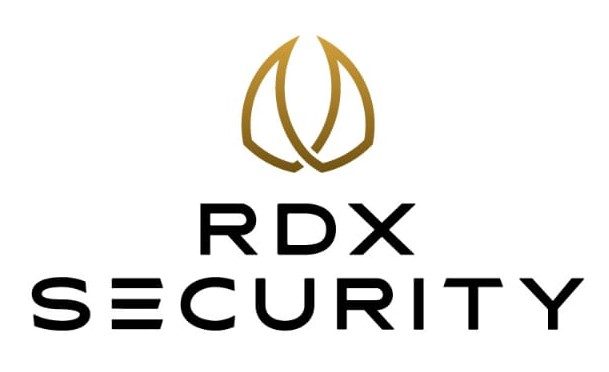RSU Taxes and Self assessment Tax Return in the UK
- December 2024
- 5 minutes
 What Are RSUs?
What Are RSUs?
Restricted Stock Units (RSUs) are a common component of employee compensation, particularly in tech companies. RSUs grant employees company shares that vest over time. Upon vesting, the value of these shares becomes taxable income, with potential further tax liabilities when the shares are sold if they have appreciated in value.
 What are the tax Implications of RSUs
What are the tax Implications of RSUs
- At Vesting:
The market value of the shares at the vesting date is taxed as income. This is subject to income tax and National Insurance Contributions (NICs) at your marginal rate. Depending on your income tax bracket, these taxes can be 42% or 47% of the vested RSUs. If you have left your employer and retained your RSU shares, the employer will also charge you employer NI as an additional deduction from these vested shares. - When Sold:
If the shares increase in value post-vesting, the gain is subject to Capital Gains Tax (CGT). The CGT rates are 18% for basic-rate taxpayers and 24% for higher-rate taxpayers, with an annual CGT allowance of £3,000 for the 2024/25 tax year.
 How to Reduce RSU Taxes
How to Reduce RSU Taxes
- Sell Shares Immediately After Vesting
Selling your shares upon vesting avoids potential capital gains since there’s no increase in value from the vesting price. You may still need to declare the shares disposal on the tax return. However, as the shares were immediately sold, it is unlikely that they could’ve gained value in a short period of time that is subject to additional taxes. - Use Tax-Advantaged Accounts
- ISAs: For those wanting to retain the investment in the company, assuming that your ISA allowance is available, you could sell the shares as soon you receive them and repurchase the shares within an ISA account to protect future growth from taxes. You can contribute up to £20,000 annually (2024/25 limit). Gains and dividends from shares held in an ISA are tax-free.
- SIPPs (Self-Invested Personal Pensions): Any shares held within a pension grow tax-free, and you may also benefit from tax relief on contributions. These claims are not automatic and we have seen many cases where higher earners were not making accurate claims to reduce their tax bills. Pension contributions is one of most effective ways you can reduce taxes.
- Transfer Shares to a Spouse
Shares transferred to a spouse are not taxable immediately and the taxes are deferred until your spouse sell those shares. However, when your spouse sell those shares they can use their CGT allowance (currently £3,000 a year) and if they are a lower rate tax payer then the rate of CGT will be less. - Maximise Pension Contributions
By contributing to a pension, you can reduce your taxable income, potentially dropping into a lower tax band. This is particularly useful for reducing the income tax burden on RSUs. If you are a parent who is concerned about losing their childcare due to high income, you can use pension contributions to lower your taxable salary and retain the additional childcare which is available to parent earning below £100k a year. - Utilise Elections (e.g., s.431 Election)
Employees may choose to pay tax on the unrestricted market value of RSUs at the time of award rather than at vesting. This can lock in a lower taxable value if the share price is expected to rise significantly. However, it must be done within 14 days of the award and carries risks if the shares decline in value.
 Examples of RSU Tax Calculations
Examples of RSU Tax Calculations
An employee receives 100 RSUs, each worth £50 at vesting.
If the shares are sold at the same price immediately:
- Income Tax: £5,000 x 40% = £2,000 (assuming 40% taxpayer)
- Employee NIC: £5,000 x 2% = £100
- No CGT, as there is no appreciation.
If the shares are sold later at £70 each:
- Income Tax: £5,000 x 40% = £2,000 (assuming 40% taxpayer)
- Employee NIC: £5,000 x 2% = £100
- CGT: £7,000 – £5,000 = £2,000 (No CGT as the gain is less than £3,000 CGT allowance.
If the shares are sold later at £120 each:
- Income Tax: £5,000 x 40% = £2,000 (assuming 40% taxpayer)
- Employee NIC: £5,000 x 2% = £100
- CGT: £12,000 – £5,000 = £7,000 (Taxable gain minus £3,000 allowance taxed at 18% or 24% CGT). Assuming 24% tax rate, the CGT payable is £960 in this example.
When selling your shares at a later date, it require complex pooling calculations and you also need to consider future vesting events for bed and breakfast rules.
 Appoint TaxQube to manage your RSU personal taxes
Appoint TaxQube to manage your RSU personal taxes
Being a regulated firm of specialist tax accountants, we are able to help you in dealing with your RSU taxes as well as submitting your tax reports to HMRC. We look after a large number of professionals from various industries and able to deal with foreign currency and complex pooling calculations.
This is a specialist area of tax, we even get referrals from other professional services firms to take care of RSU vesting, ESPP purchasing clients and handle their reporting duties.
Unlike other firms, we do not charge anything from your tax savings which could be in thousands, you keep 100% of it. We help you maximise your tax savings as we have seen cases where people miss out by simply doing it themselves or by not using a tax specialist advisory firm like TaxQube.
We only charge a monthly retainer fee which gives you access to accredited tax advisers to help you manage your taxes and keep your cost pool up to date to help you proactively plan and optimise your taxes. Contact us for a free of charge initial consultation.































